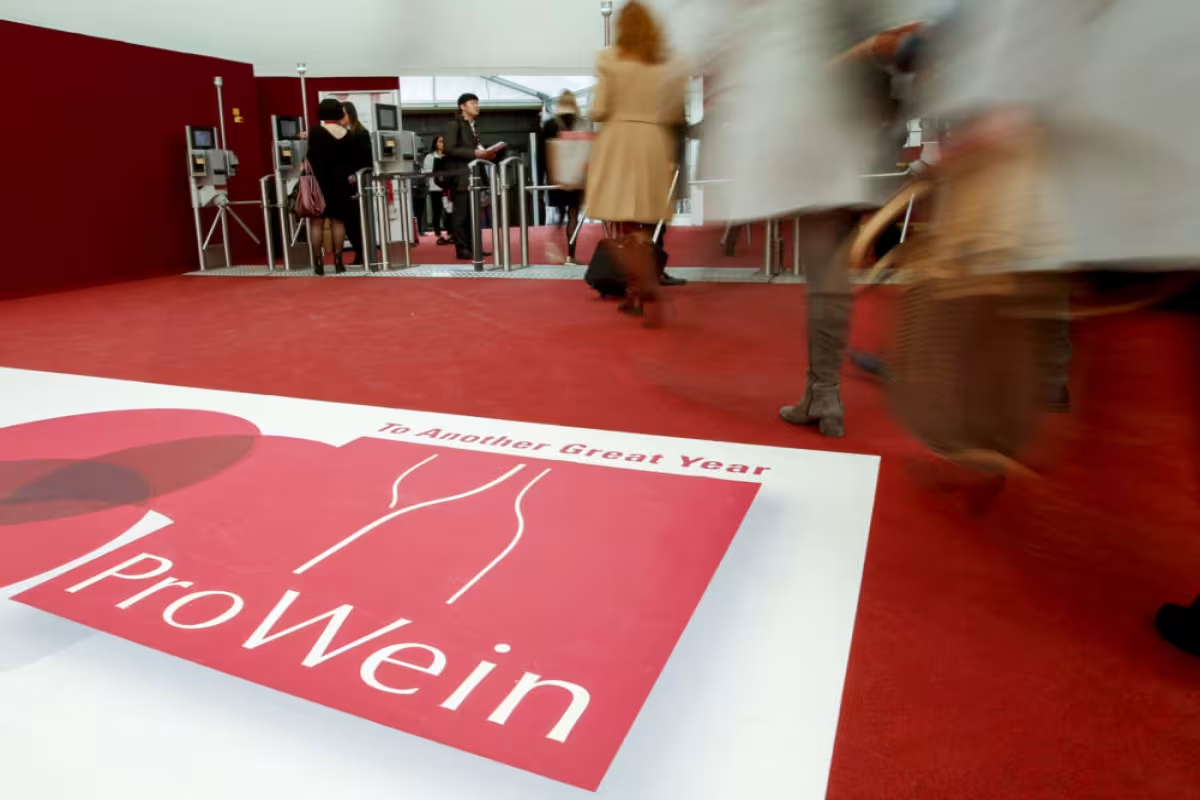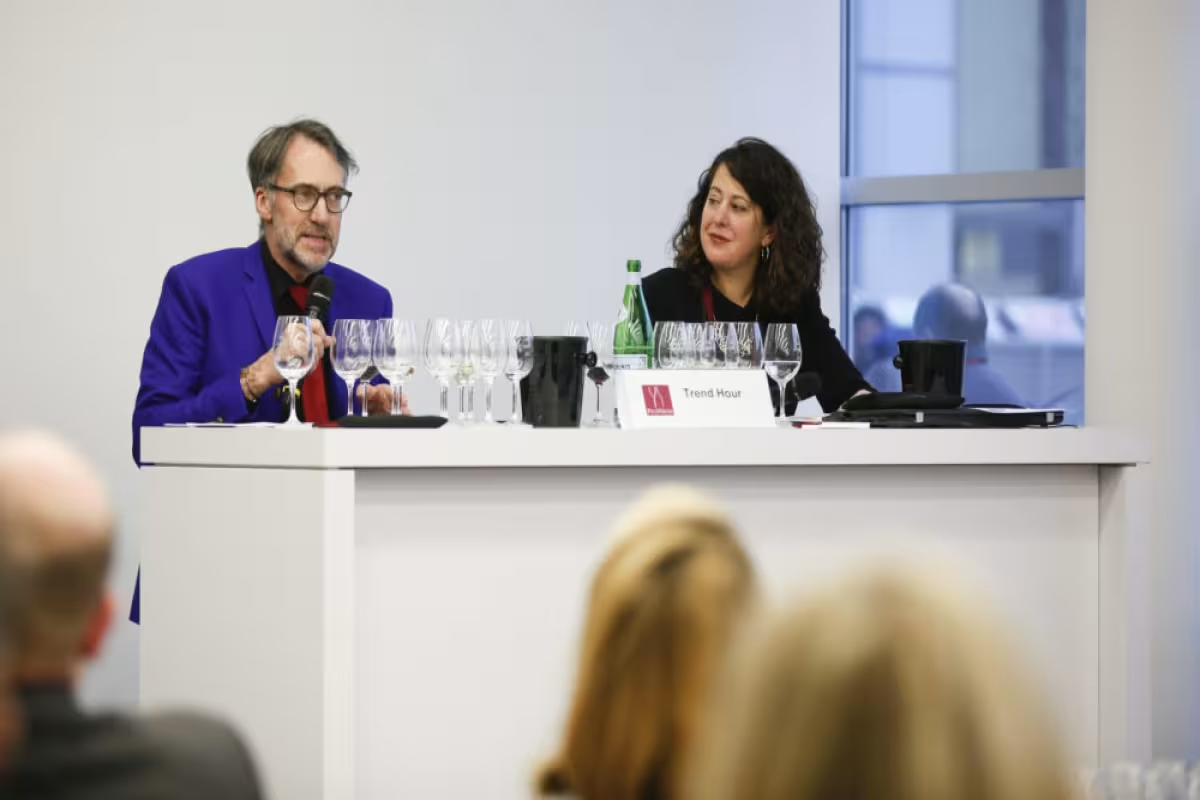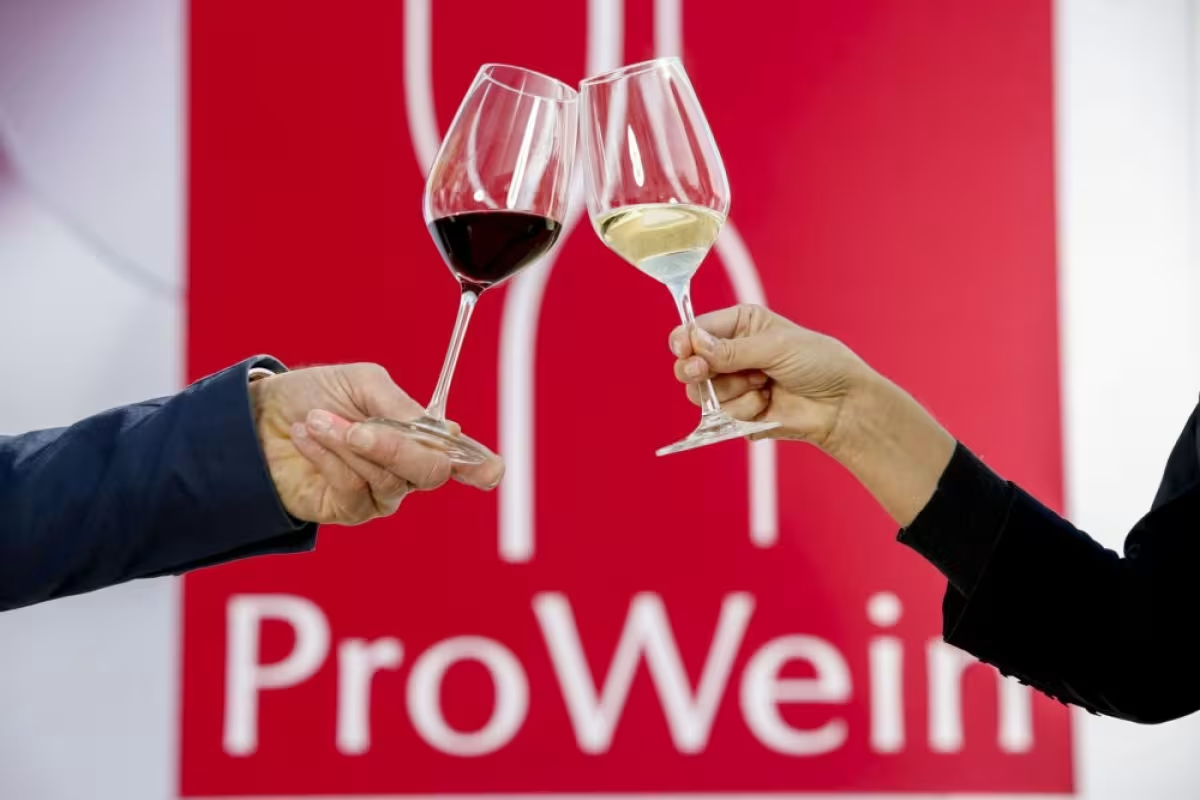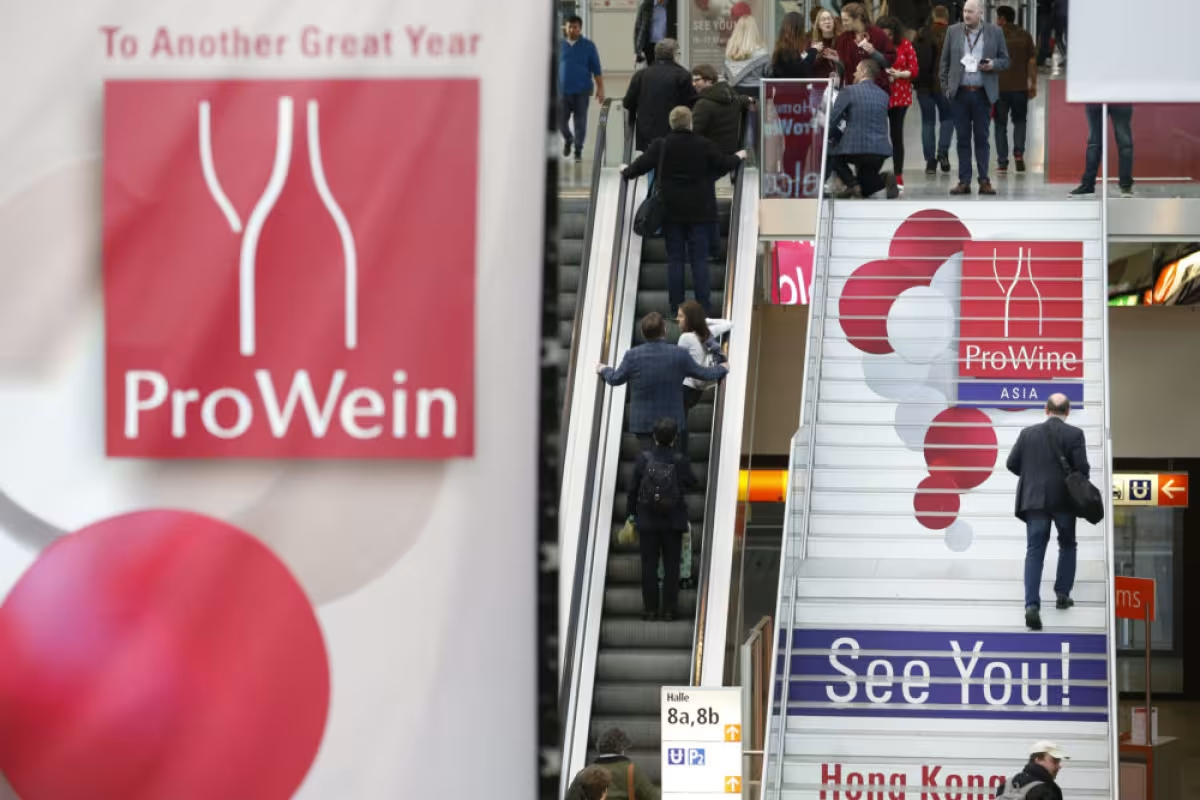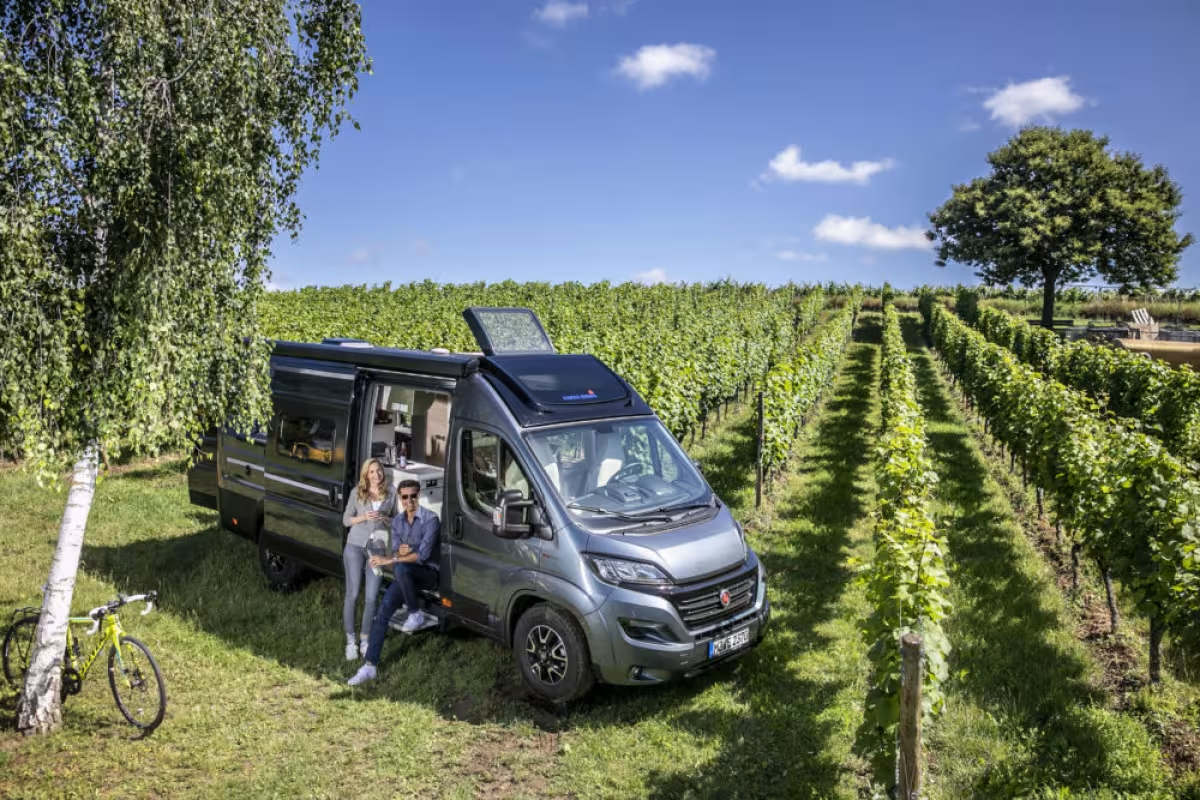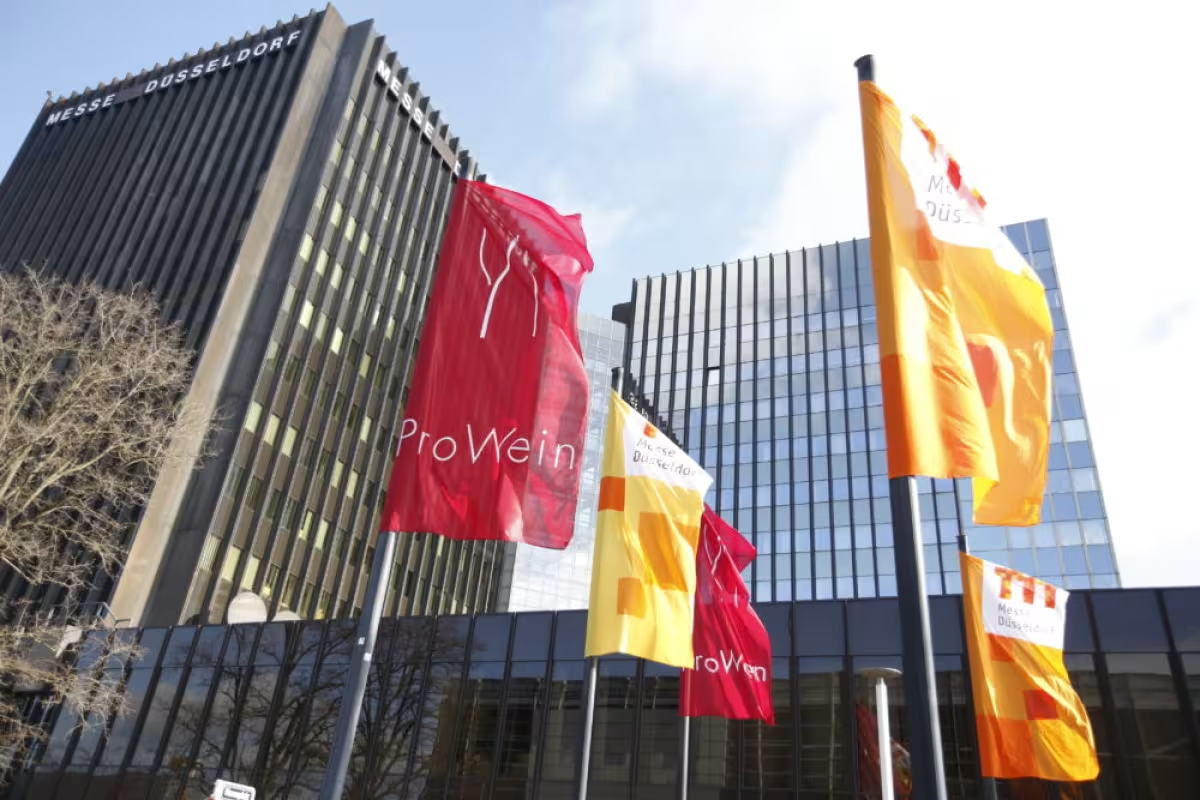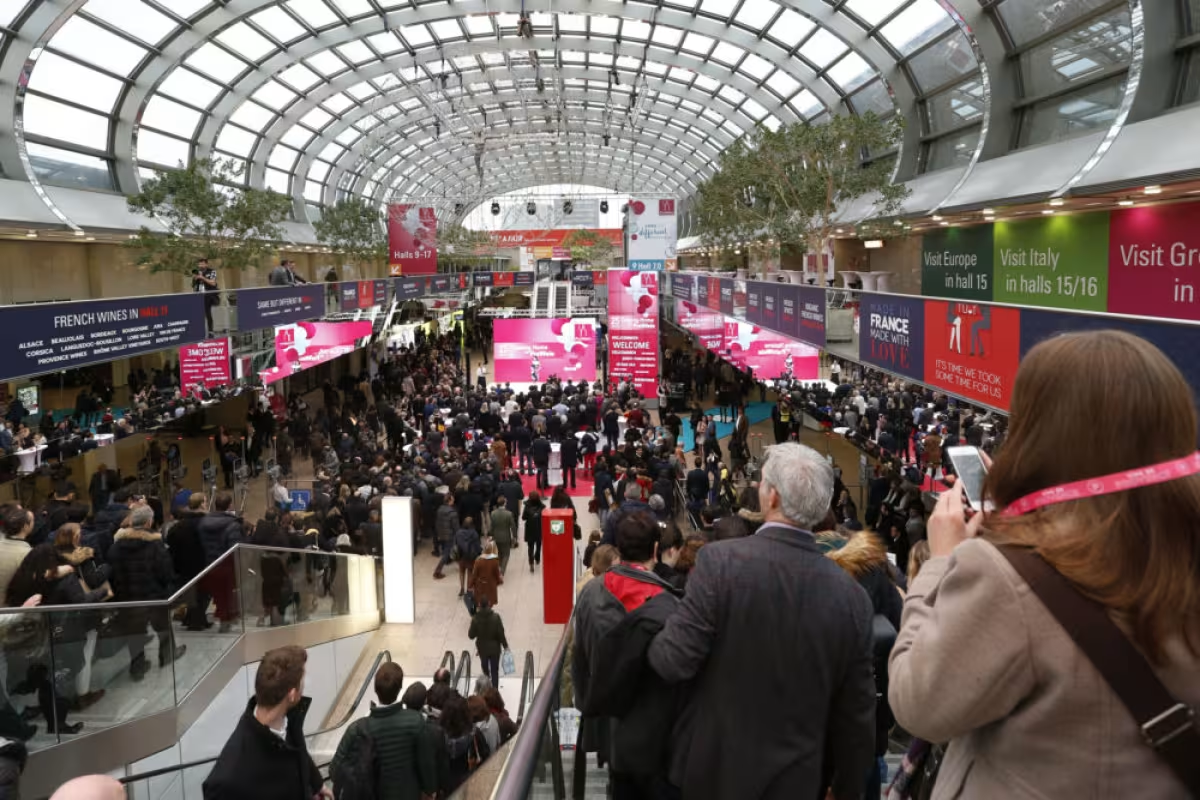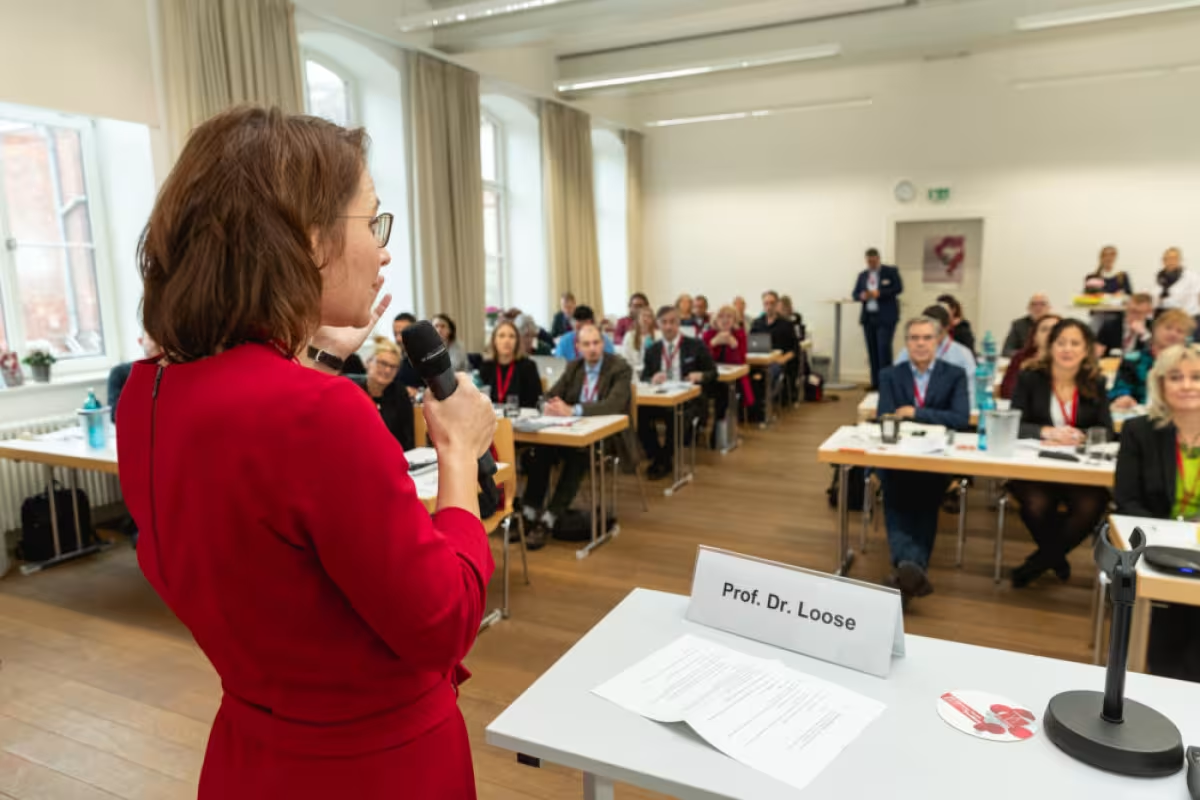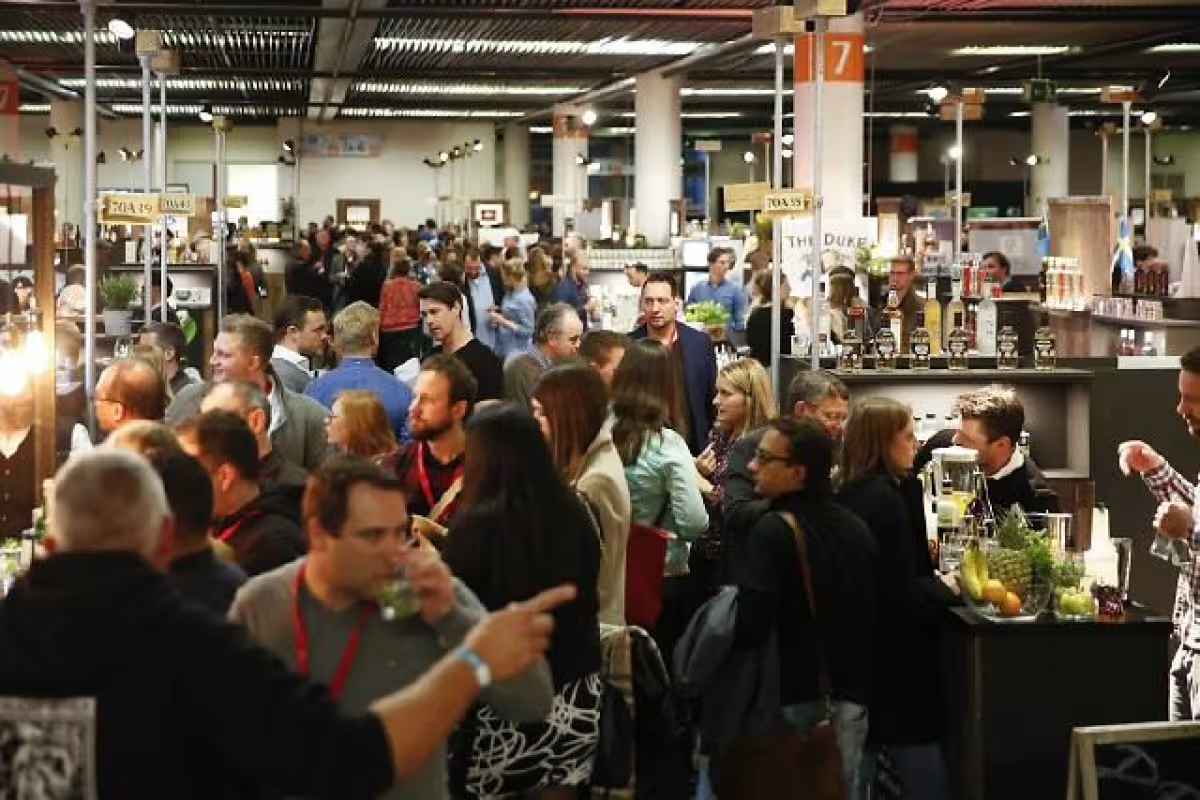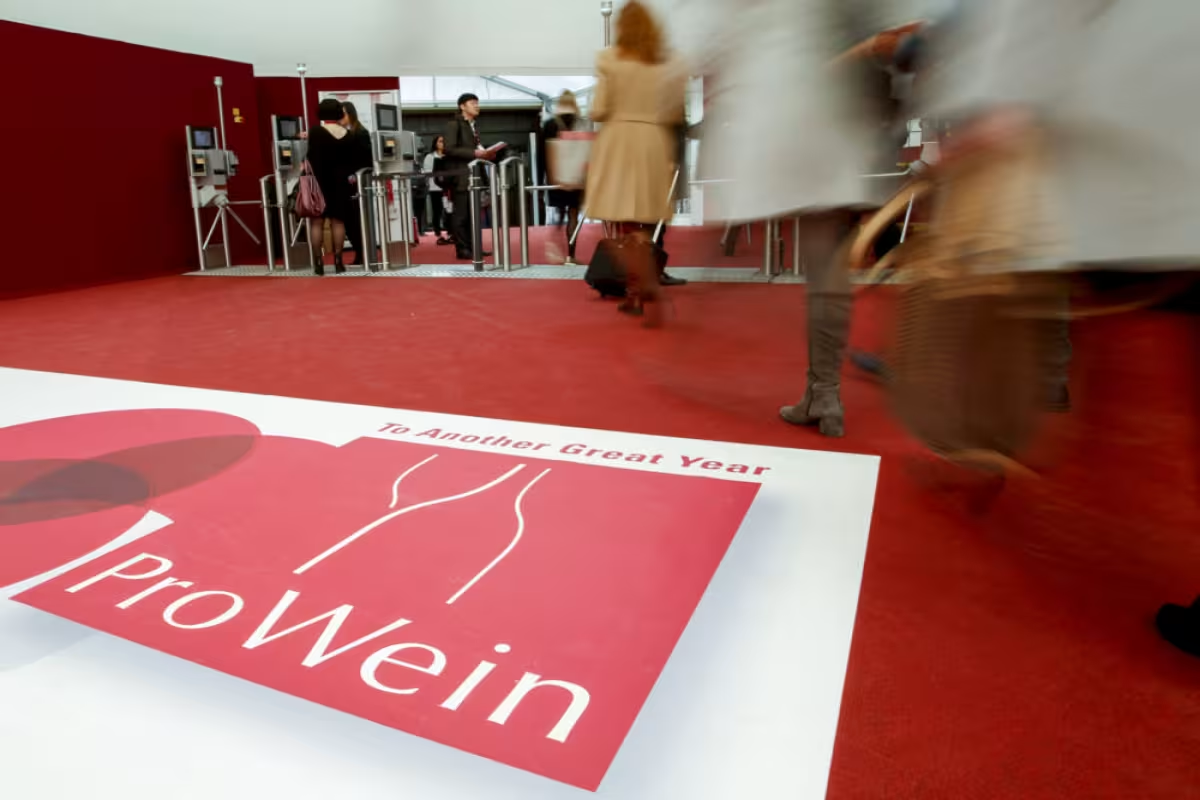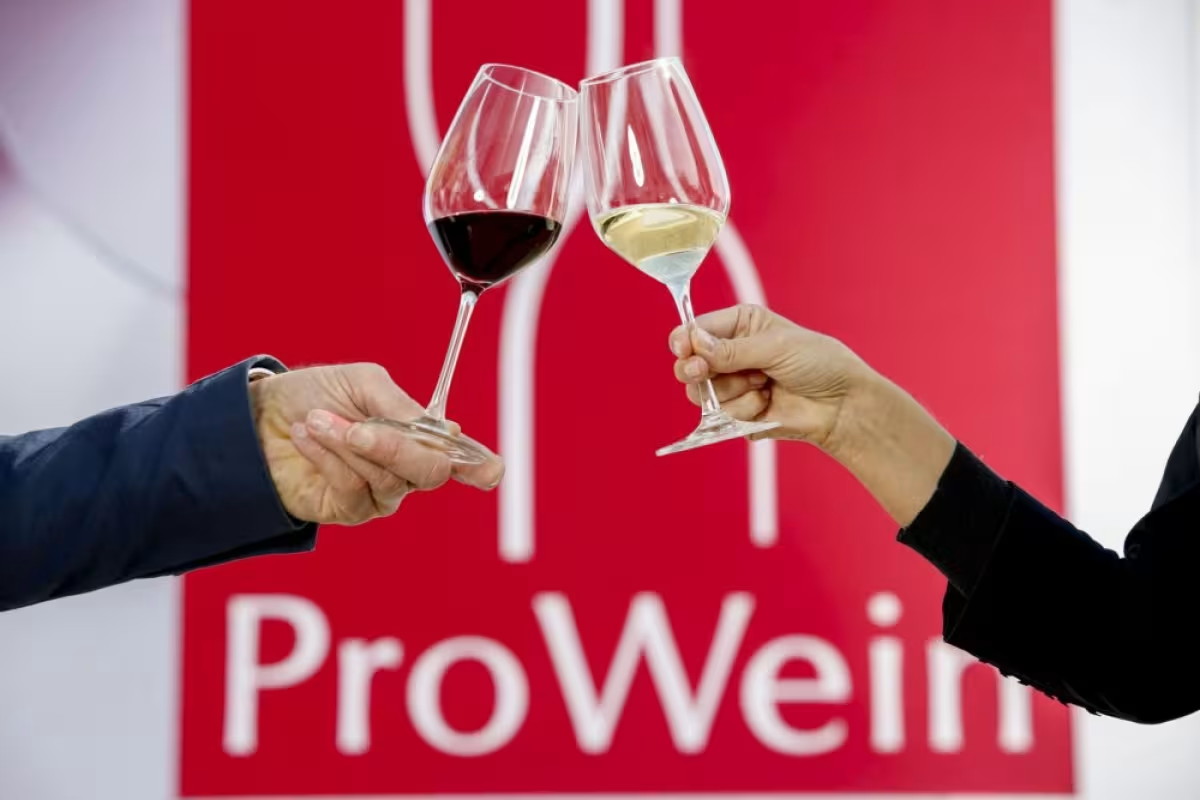SHERIDAN, WYOMING – September 25, 2025 –
The wine sector looks positively at post-Covid times and bets on sustainability
Commissioned by ProWein, late 2021 saw Geisenheim University survey experts representing the entire wine supply chain from 48 countries for the fifth time now. Participants in the survey include wine producers from the most important wine-growing countries in the old and new world, exporters, importers, specialist wine dealers as well as representatives from food service and hospitality. Following on from the unique “journey through time” undertaken with the market barometer for the international wine industry since 2017 this ProWein Business Report rates the importance of challenges facing the sector after two years of pandemic.
The focal theme of the current ProWein Business Report is the significance and implementation of sustainability in the wine industry. It looks at whether sustainability has lost any of its importance during the pandemic and which concrete measures the wine sector has already undertaken to become sustainable. The ProWein Business Report is the first international study comprising industry views on the current and future significance of organic and sustainably certified wine growing. It specifically deals with the question of how sustainability can be communicated to consumers in the most effective way. “The particular importance of sustainability for the wine sector is reflected in the very high participation rate of nearly 3,000 international experts,” stresses Prof. Simone Loose, Head of the Institute of Wine and Beverage Business at Geisenheim University. “The sector is faced with the challenge of adapting to climate change while becoming greener and more sustainable as well as of credibly getting this message across to their customers. This will only be possible if the industry joins forces and wine producers and dealers as well as hospitality can all act and communicate credibly.”
TOPIC BLOCK 1
The mood in the industry
The current economic climate in the wine sector is better than expected in the first year of the pandemic.
The international wine trade has clearly recovered and the sector optimistically looks to the post-Covid 19 future.
Disrupted supply chains and cost increases are currently the biggest challenges.
Climate change is a strong or very strong threat for six out of ten wine producers.
Economic climate improved and better than expected
“Contrary to expectations the economic climate has not deteriorated any further – the wine sector is doing better in 2021 than in the previous year 2020.”
Since 2017 the ProWein Business Report has mirrored the wine industry’s economic situation and business expectations of the day. In 2020, the first year of the pandemic, the sector still looked to the future with great pessimism. Contrary to expectations, however, 2021 saw a clear recovery in the wine trade – however, the good economic climate prevailing prior to the pandemic has not been reached yet. Expectations for 2022 are cautiously positive.
Spanish and Italian wine producers hope for the strongest post pandemic improvement of wine demand. French producers are slightly less optimistic because of the high crop losses due to late frost, while German producers are generally more reserved. Wine trade and hospitality expect the situation in 2022 to hardly change against 2021.
Graphic Chart: 1_small_recovery
Current challenges for the wine industry
“Overloaded supply chains and rising prices are right now the key challenges facing the sector.”
The concurrent economic recovery occurring on a global scale after the Covid-19 crisis leads to strong cost increases for energy, raw materials and transport as well as to long delays in global merchandise shipping and, hence, also for wine shipments. Cost increases endanger the profitability of international wine transactions. The wine sector is therefore faced with the challenge of factoring in these cost increases and of passing them on in the supply chain. Since consumer budgets are subject to significantly larger burdens in this inflationary climate in general, the sector is worried about wine consumers’ reactions to price increases. It is therefore uncertain how strongly the current trend of premiumisation of wine can be continued in the near future.
Graphic Chart: 2_challenges
“Hotels and restaurants as well as specialist wine dealers are still suffering from the Covid-19 induced sales restrictions.”
Covid-19 continues to restrict wine trade. Consequences of the pandemic rank third in the list of current challenges. After an initial recovery in summer 2021 the new Covid variants have again heavily constrained tourism and the meetings industry worldwide. Although it is hoped that summer 2022 will bring marked improvement and normalisation, it is not safe to say what the “new normal” in social life will look like after the pandemic. Wine dealers and food service providers have so far felt less of the effects of climate change and environmental regulations than the producers. This goes hand in hand with a lower awareness of sustainability among wine traders as well as a low willingness to honour the higher cost of sustainable wine and to communicate it to consumers.
“Climate change and stronger environmental regulations paired with concurrent lower profitability face wine producers with major challenges.”
The pandemic and the less extreme last summer have weakened the public perception of climate change. The process of climate change, however, continues unabated and also in the current survey constitutes a strong or very strong threat for six out of ten wine producers, making costly adaptation measures necessary. At the same time, wine producers are faced with the challenge of complying with increasing environmental regulation by means of investment. Considering the low profitability of most wine producers, coping with environmental challenges proves an economic burden especially for many smaller outfits and will further accelerate the concentration process.
Wine producers also face more challenges on account of price increases in general. In France and Germany the European health policy to reduce alcohol consumption is felt particularly strongly. Producers in new world countries, the USA, Australia and South Africa perceive the international trade war as well as competition through other beverages (Hard Seltzer, Craft Beer) and the legalisation of cannabis as particular challenges.
TOPICS BLOCK 2:
Organic viticulture and sustainability
The importance of sustainability remains high and actors are actively implementing measures to improve it.
From the industry’s point of view, the requirements for certified organic viticulture should be further developed in the direction of sustainability.
The industry demands a uniform, strong and credible standard for sustainability.
Organic viticulture paving the way for sustainability
“Organically certified viticulture is already widespread with strong regional differences due to climate.”
Certified organic viticulture looks back on a long tradition and in essence centres on the use of non-synthetic substances for vine protection and fertilisation. The Green Deal of the European Commission aims for a quarter of European vineyards to be cultivated as certified organic to increase sustainability. This has given rise to a heated debate in the wine sector about how sustainable organic viticulture really is.
The industry leaders polled hold noticeably more organic certifications than the industry average – values are not representative for wine-growing countries though. Thanks to the climatic advantage of dry, Mediterranean summers organic viticulture is most widespread in Spain, Italy and France; 61%, 52% and 35% respectively, of the industry leaders participating in the survey are organically certified, and nearly all of them could imagine changing their production over to organic in future.
Due to the moist and cool climate that promotes fungus diseases in vines only 21% of the German producers surveyed are organically certified and the majority of vintners in Germany and the new world are not considering going organic in future either.
Graphic Chart: 3_organic
“The future prospects in the wine trade and in food service are positive but unfortunately also clouded by consumers’ unwillingness to pay for organic wine.”
The majority of specialist wine dealers (78%), hoteliers (77%) and food service providers (72%) assume that organic wine production will continue to rise in future. Optimism is strongest among the trade representatives in Scandinavia, Belgium, Luxembourg as well as France and Italy. Part of these countries are even noting active demand for organic wine among consumers. In contrast to this, wine dealers in the Netherlands, Germany and Eastern Europe report of lower demand from consumers and an unwillingness to pay for organic wine. They are therefore less optimistic about market growth for organic wines. For those in the wine trade consumer unwillingness to pay for organic wine and organic certification costs rank first in the list of reasons for refusing certification. Only a third of those in retail and food service expect the EU to attain its 25% organic vineyards target.
“The industry is calling for the further development of organic viticulture towards environmental sustainability.”
From the vintners’ point of view, the economic risk and use of copper for plant protection are the two key reasons against organic certification. The environmental and economic sustainability of organic viticulture is seen as rather critical by winegrowers. Only half of them believe that profitable viticulture is environmentally sustainable. This view is most widespread in Spain at 82%, while German vintners (at 41%) are most critical because of the herbicides often needed. The environmental sustainability of organic viticulture is rated even less positively. Only 30% of German vintners, 40% of vintners in France and Italy and 58% of vintners in Spain feel that organic winegrowing is economically viable in the long term. A greater willingness to pay on the consumers’ part would be a key prerequisite for covering the higher costs for organic wine production in growing regions not graced with an ideal climate.
Graphic Chart: 5_organic_rules
The overwhelming majority of the industry demands further development of organic viticulture regulations to reconcile them with the more comprehensive concept of environmental sustainability. This demand is equally shared by all wine-growing nations; 8 out of 10 producers agree that further development is necessary. In general, those in the wine trade and food service sector have a less detailed insight into the production conditions of organic winegrowing. Nevertheless, they are similarly critical when it comes to the sustainability of organic viticulture: 7 out of 10 representatives of the wine trade and food service sectors demand a consistent development of organic viticulture towards sustainability.
Sustainability is as important as before for the wine sector and implemented with concrete measures
“The pandemic has not diminished the importance of sustainability for the wine industry – economic sustainability is most important.”
At the beginning of the pandemic, industry experts voiced their concerns in the last ProWein Business Report that the challenges triggered by Covid-19 would limit the industry’s ambition to reach sustainability. Fortunately, these fears have not been confirmed. Compared to 2019 sustainability is considered as important as before in the industry.
Of the three pillars of sustainability, the economic pillar – meaning the long-term survival of a company – is the most important dimension of sustainability, according to the wine industry. Only economically viable and successful companies can invest in environmental and social sustainability.
“The new world and France lead in producer sustainability.”
Being a more recent concept, certification as a sustainable producer is not yet as widespread as organic viticulture. In the lead here are the new world and France where roughly half the vintners surveyed are already certified as sustainable. In Spain, Italy, Portugal, Austria and Greece 40-50% of those polled are considering sustainability certification in future. Of the larger companies in cooperatives and wineries one third already hold or are undergoing certification at present. This percentage is still markedly lower among smaller wine-growing estates. In Germany, where many small enterprises also took part in the survey, most companies have not considered certification so far.
Awareness of sustainability certification has so far been least pronounced in the wine trade and food service segments. In terms of trade, Sweden and Finland, where more than 30% of companies are certified as sustainable, are out in front – followed by Norway (27%), France (21%) and Austria (16%). In Central Europe one in ten of the polled wine dealers and gastronomers are sustainably certified: Denmark (11%), Belgium (9%), Netherlands (8%) and Germany (7%).
“There are already numerous concrete measures to improve sustainability in viticulture.”
The vintners polled stated they had predominantly undertaken measures to achieve environmental sustainability. Two thirds of the wine-growing estates surveyed had reduced the use of herbicides (France and Austria are leading here at 80%, followed by Spain 74%) and proactively promoted biodiversity (USA 78%, France 72%, Germany 61%). Half the estates polled had minimised the use of pesticides (New Zealand 100%, USA 90%, France 80%, Spain 70%), and just under 30% had reduced water consumption (South Africa 90%, New Zealand 50%, Portugal 40%). Due to the high investment costs associated with its use, digital technology for optimally dosing water, fertilisers and herbicides is so far not very widespread. The countries of the new world (Australia 50%, USA 33% and South Africa 33%) are leading here compared to old world nations (Spain and Italy 22%, France and Portugal 17%, Germany 11%).
Graphic Chart: 4_ecological_actions
“Wine trade and gastronomy are also focusing on concrete measures in the field of sustainability. However, support from producers through listing and marketing still leaves room for improvement.”
Specialist wine dealers and gastronomes have so far focused their measures especially on saving resources. These include saving paper by digitalisation by one in two companies, waste avoidance (Norway and Portugal 50%; Finland, Sweden and Spain 45%), reduced energy consumption (Sweden 43%, Finland 35%, Germany 28%, Belgium 26%), optimisation of the supply chain to reduce CO2-emissions (Luxembourg 45%, Norway 36%, Sweden 32%) and changeover to a CO2-neutral energy supplier (Sweden 25%, Italy and Belgium 24%, Austria 18%).
Beyond this, wine dealers and hospitality play a crucial role in the listing, marketing and communication of sustainable products with consumers. So far, the majority of dealers have stated they have marketed organically or sustainably certified wines as part of their portfolio (Sweden 67% of dealers, France 60%, Finland 57%, Poland and Luxemburg 55%, UK 52%, Italy 47%). While one in four wine producers say they use alternative wine packaging, only one in ten specialist wine dealers and gastronomes have listed these for marketing. There are vast regional differences here, with the Nordic countries in a clear lead due to the monopolies in those countries (Sweden 57%, Finland 48%, Norway 43%, Canada 30%, UK 24%, France 20%, Germany 4%). Since the production and transportation of glass bottles accounts for a third to a half of the CO2 emissions, the greatest potential for supporting sustainable products lies with the trade side of the industry.
Uniform, credible sustainability standard is called for
“The industry calls for one single credible standard!”
Industry representatives agree that consumers cannot understand and differentiate between the great number of environmental and sustainable certifications. Eight out of ten industry experts demand a unique, strong sustainability standard that can be jointly communicated to consumers.
Graphic Chart: 6_one_standard
The industry names credibility, independence and a critical audit of the data submitted for certification as the most important requirements for notified bodies. Ranking second are consulting and proposals as to how the sustainability of the company can be improved in concrete terms. The companies surveyed also felt that the certifying bodies should translate research into more sustainable measures and build a network for companies to exchange on best practice.
The motivation of producers and dealers to obtain a sustainability certification is primarily driven by their own conviction and their personal interest in sustainability as a holistic system. This interest shown by companies now needs to be increased further by targeted information. A vague definition of sustainability and the risk of greenwashing are stated as the biggest obstacles to certification, followed by consumers’ unwillingness to pay for this and excessively high certification costs.
“Certification as a joint path with political regulations is called for.”
At a rate of 8 out of 10 companies the absolute majority of industry experts are aware that the wine sector still has substantial room for improvement in terms of sustainability. One in two of those polled regard mandatory legal regulations (like the ban on herbicides) as more effective than voluntary commitments of the organisations to reach these sustainability goals. In particular, the companies already obtaining or undergoing sustainability certification are those calling for additional state rules. These companies with a particularly strong interest in sustainability believe that certification and state regulation complement rather than replace each other. From the wine producers’ perspective, however, there is a risk of sustainability regulations leading to distortion of competition through higher costs. One in two wine producers fear competition by wine imports from countries with cost advantages from low sustainability standards and demand compensation by way of import restrictions on non-sustainable wine.
“Sustainability complements tomorrow’s organic cultivation.”
Environmental viticulture has paved the way for more sustainability in the wine sector. Holistic sustainability goes one step further and also encompasses measures to reduce greenhouse gas emissions and to save water and energy as well as actions for economic and social sustainability. The majority of industry leaders polled can imagine undergoing sustainability certification or are already certified. The results of the survey conducted for the ProWein Business Report allude to sustainability becoming a complement for “tomorrow’s organic cultivation”. Those wine-growing companies obtaining both organic and sustainable certification, have – by their own accounts – undertaken more measures to achieve environmental sustainability than companies that are only certified as organic producers.
A sustainable wine industry is only achieved if all actors along the complete supply chain cooperate and can also convince shoppers of the benefits of sustainability with their approach. To this end the wine trade and hospitality have to better fulfil their roles as ambassadors and communicators of sustainability and contribute to the successful sale of sustainable wine.
Commissioned by ProWein, this study was carried out by the Institute for Wine and Beverage Business at Geisenheim University, headed by Prof. Dr. Simone Loose and her team. Celebrating its 150th anniversary, Geisenheim University today is one of the leading wine research and education centres in the world. It offers a wide range of German and English wine degrees complemented by the new MBA for Management in the Wine Sector.
ProWein and Geisenheim University look forward to also successfully continuing the ProWein Business Report over the coming years. With this study ProWein provides the wine sector with a worldwide unique market barometer over an extended timeline answering key questions of the sector and addressing special themes on an annual basis. We would like to thank survey participants and hope for continued, avid participation of wine producers and marketers going forward.
Upon request each participant is provided with a complimentary copy of the detailed ProWein Business Report.
Note for editors: for current visuals visit www.prowein.de.
